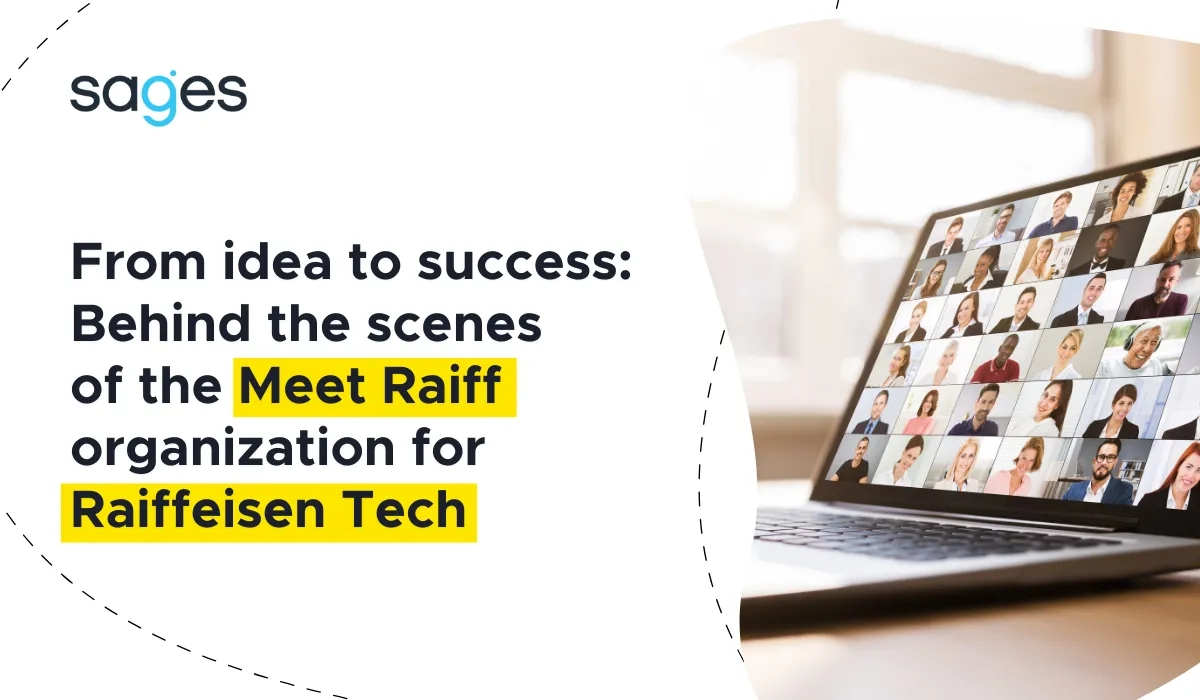A job that provides stability (primarily financial) is one of the basic needs in times of uncertainty. However, to a more or less changeable and increasingly unpredictable reality, we will have to get used to it and learn to function in it. Therefore, it is equally important that work provides the opportunity for development, is one of the tools that activates our potential. This aspect cannot be neglected or postponed, because continuous personal and professional development will allow us to gain competencies that will meet the needs of a dynamic market.
From this article you will learn:
- What a growth culture is based on.
- What you, as a manager/head/leader, can do to support the development of your employees' potential.
- To what extent a manager is responsible for employee development.
1. growth culture
A sense of security
At the core of a true growth culture is an interest in other people - how people feel and how they behave as a result. One of the most important factors influencing our behavior is a sense of security.
Openness to making mistakes
If employees are afraid to make mistakes, or worse - afraid to admit them, they focus their energy on avoidance and defense mechanisms, which form passive and reactive attitudes. In contrast, (pro)active attitudes - exploration and creativity are triggered when people are allowed to try, make mistakes and learn from them.
Allow mistakes to be made, but don't allow them to be repeated. Expect lessons learned. A mistake from which we do not learn, individually and/or collectively (depending on the situation), is a missed opportunity to learn and improve. Often a costly opportunity. Just as we implement a culture of sharing knowledge, we should implement a culture of sharing lessons learned after mistakes are made. Just remember to make the conversation about the situation, not the person who made the mistake.
Feedback
A culture of growth is a culture of developing, not evaluating. I don't deny the idea of employee evaluations - but it is one thing to monitor work progress and performance, and another to create an atmosphere where employees feel that their every step is being watched and evaluated, and "Big Brother is watching." It is very important to distinguish between performance appraisal (usually semi-annual or annual) and feedback (which should be given on an ongoing basis). Developmental feedback is about results, efforts and attitudes. As a call to change behavior - it gives a chance to correct it; as a call to reinforce positive and expected behavior - it allows you to stay on the right course. Yes, people need to hear what they're doing right to feel appreciated and to know they're supposed to continue on that path.
In a culture of growth, people develop the ability to see opportunities, not just threats, and openly admit uncertainties and shortcomings. They use less energy to defend their own point of view, and thus have more energy to build value for the organization. How people feel - and how they make others feel - is as important as what their level of knowledge is.
2 The supportive role of the manager
As a manager, you are responsible for co-creating a culture of growth - for creating opportunities and "opening doors" to develop potential.
Develop strengths
Take advantage of your employees' natural talents - focus on them and help develop strengths. Why is this much more important than bridging deficits? First, focusing only on deficits (even if you use positive language and call them areas for improvement) breeds frustration. Second, by focusing on them, you are only leveling deficits, making someone equal to some accepted average. Rather, you don't help spread wings this way. You may prevent failure in this way (e.g. in a project), but success is unlikely. After all, development is about rising, growing, not equaling the average (which is what it is - in some simplification, of course - working on weaknesses, it's like "filling in the pits"). So instead of focusing on so-called weaknesses, let's create space to develop natural abilities. In Strengthsfinder 2.0 we find such an equation:talent x investment = strengths
- talent - a natural predisposition to do something, a way of thinking and/or behaving
- investment - time spent exercising talent i.e. developing skills and improving knowledge
- strength - the ability to deliver high quality work results at a virtually constant (or increasing) level
It can be said that a strength is a well-established and practiced competency (defined as knowledge, skills, attitude). Be the one(s) who recognizes talents and provides opportunities for employees to improve them. Development is a natural psychological need, and a lack of development perspective is very demotivating.
Set challenges
For employees to truly develop their skills, the bar should rise. At the same time, the criteria for achieving it should be clearly defined. You may know from your own experience how it feels when you have to "jump" to some requirements, but you don't know at what height the bar is suspended. It is much more motivating and honest to define (preferably together) the parameters of success.
When developing through challenges, don't measure your team members by a single scale. A team is made up of individuals - everyone is different, with not only different talents, but also different needs. Some will be ready for risks and challenges fairly quickly, others will need a safe run-up and more time.
By entrusting more and more challenging tasks, you give an expression of your confidence - you trust that the person is up to it. This motivates and encourages effort (no one wants to disappoint expectations). However, remember to balance the level of "ambitiousness" and adjust it to the level of development and competence of the team member in question and his/her seniority in the organization. Tasks that are too difficult demotivate (the employee feels that he or she is not up to it and that he or she is "disappointing" the boss) and can generate real organizational risk, tasks that are too easy also demotivate (thoughts like "after all, I can afford to do more" appear) or - at best - do not bring anything new.
Share responsibility - delegate
*Delegating is about trust. And risk.*By putting some of the responsibilities in the hands of your employees, as in the case of delegating challenging tasks, you are giving an expression of trust. You're also inviting collaboration, co-creation and co-determination. You give team members a chance to prove themselves in new tasks and situations. This is the time of "investment". On the one hand, you are investing in the employee, because the process of delegation (not to be confused with relegation or so-called "take it from the corridor" delegation) is time-consuming; on the other hand, it's that moment, as Don Clifton points out in Strenghtsfineder 2.0, when the employee has the opportunity to develop his or her talent - to put it into practice and experience the results it produces.
By delegating, you give employees a chance to develop their knowledge and skills in practice. Also encourage employees to share tasks among themselves. They don't necessarily have to accept tasks only to you. If you have people with different experience and seniority on your team, you may find that something that is already boring and undeveloping for someone will be an interesting experience for another person to take a step forward.
3 Responsibility for development
Each of us is responsible for his or her own development, but no one is an isolated island, so the development process is a system of interconnected vessels.
Manager's responsibility
The manager is responsible for creating a developmental environment - he or she should foster cooperation, encourage knowledge sharing, promote a culture of feedback (vertical and horizontal), assign tasks to employees that are appropriate to their level of competence, yet in line with their ambitions and with an eye to the future - employees who develop their potential today will be ready for the challenges of tomorrow.
The manager's role is also to help define development goals so that they allow employees to develop their potential and are in line with the operational and, above all, strategic directions of the organization. Sometimes all it takes is a few questions that open an employee to a different way of thinking or point to a different perspective to inspire. Give opportunities, create possibilities, give directions, and at the same time allow the employee to present his or her own ideas on how he or she wants to achieve development goals. More ideas are born in dialogue.
The 70-20-10 rule
In the 1990s. Michael M. Lombardo and Robert W. Eichinger developed the concept of learning, according to which 10% of knowledge and skills are acquired through training, 20% - by learning from others, and 70% - through practice. It turns out that budget does not have to be a constraint on the path to developing the potential of employees - the most important thing is the opportunity to experience.
Summary
Developing an employee's potential is a process and the resultant of many factors. Everyone has a different pace of development and his or her time to grow - his or her time of readiness to go further and reach for more. We come from different backgrounds, have different professional and personal experiences, so attentiveness and openness - both of the boss and the employee - is important. A wise and attentive boss will not put the same expectations on everyone, he will first pay attention to the individual predispositions of the employee. At the same time, the boss is also a human being, he may be wrong, he may make mistakes, he may miss something. Therefore, the attitude of the employee is equally important - whether he only expects, whether he cooperates, whether he actively seeks development opportunities himself. If two parties have a dialogue, listen to each other and want to understand and treat each other as partners - both have a chance to develop their potential.
If you want to take proper care of your employees' development, check out our dedicated training offer. You will find both technical and soft training courses. Our catalog includes training courses for programmers, testers, integrators, managers, analysts.




